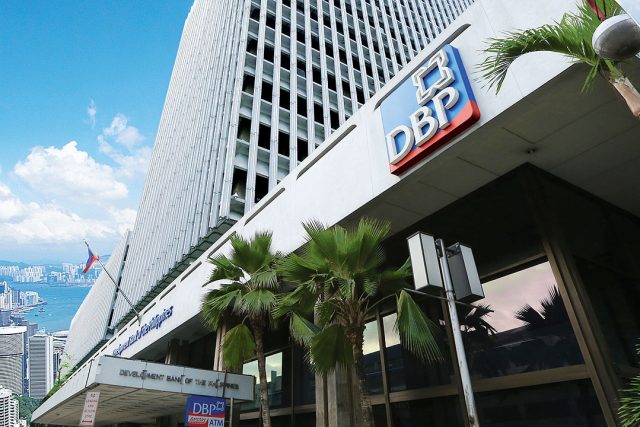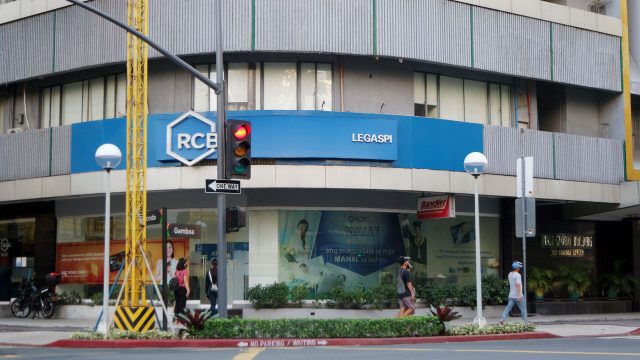15th Asia CEO Awards unveils 188 Circle of Excellence honorees
The long wait is over as the 15th Asia CEO Awards announces its Circle of Excellence.
Considered the largest event of its kind in the Southeast Asia, the Asia CEO Awards honors the most successful companies and individuals in terms of excellence in business achievements and positive impact to society.
View the list of 188 companies and executives who will be honored as Circle of Excellence here: https://www.asia-ceo-awards.org/.
Presented by Robinsons Land, a number of reputable partners collaborate to ensure everyone is given an opportunity to be recognized for their inspiring entrepreneurial spirit, which ultimately leads to making the Philippines a first world nation.
“Most categories received 40 and 60 submissions from which the Circle of Excellence awardees were chosen. These organizations and people are the best of these, chosen for their out-sized contributions to the nation’s progress,” shares Richard Mills, Chairman of the Asia CEO Awards.
He added that hundreds of submissions were received which showcases the amazing strength and diversity of the country’s economy.
Mr. Mills, who is also Chairman of the Board of Judges, said, “Our research experts at PwC spent weeks analyzing and confirming information for the Board of Judges who spent many intense hours to determine awardees.”
The Circle of Excellence are part of the following categories: Airspeed SME Company of the Year, Figari Entrepreneur of the Year, IBPAP IT-BPM TechBlazer of the Year, iCXeed Diversity Company of the Year, KMC Solutions Woman Leader of the Year, KonsultaMD Most Innovative Company of the Year, Maybank Sustainability Company of the Year, MicroSourcing Young Leader of the Year, Sante Wellness Company of the Year, Sprout Solutions Technology Company of the Year, and White & Case Governance Organization of the Year.
Other categories are Company of the Year, CSR Company of the Year, Service Excellence Company of the Year, Top Employer of the Year, and CEO of the Year.
White & Case Governance Organization of the Year
- Cloudstaff
- Immuni Global, Inc.
- Land Bank of the Philippines
- Polytechnic University of the Philippines
- Tech Mahindra Limited
- Zenutna Holdings Corp. (ZHC)
KonsultaMD Most Innovative Company of the Year
- Cloudstaff
- Concentrix Philippines
- Eastvantage
- GoTyme Bank
- Lexmark Research and Development Corp.
- LSEG (London Stock Exchange Group)
- Pili AdheSeal, Inc.
- Rizal Commercial Banking Corp. (RCBC)
- RUSH Technologies, Inc.
- Securities and Exchange Commission
- TDCX (PH), Inc.
- Teleperformance
- UNO Digital Bank
Service Excellence Company of the Year
- Airspeed
- ASUS Phils. Corp.
- CGI Phils, Inc.
- ING Hubs BV Philippine Branch.
- Inventi Intellectual Holdings Corp.
- RELX Reed Elsevier Philippines
- Seda Hotels
- Sprout Solutions
- SSS
- Theos Cyber Solutions, Inc.
- VXI Global Holdings BV Phils.
- Wipro Phils, Inc.
Airspeed SME Company of the Year
- Angkat PH
- Aficionado-Central Affirmative Co., Inc.
- Asialink Finance Corp.
- Asian Consultancy Group
- Devteam Outsourcing, Inc.
- Ebizolution, Inc.
- EdukSine Production Corp.
- Motovita
- Prometheus
- PSO Manila | Pepper Money
- Tent King
Sprout Solutions Technology Company of the Year
- Aboitiz Land, Inc.
- Ask Lex PH Academy
- Citicore Renewable Energy Corp.
- Concentrix Philippines
- Datamatics Global Services Corp.
- GoTyme Bank thru Frederick Blancas
- Hytec Power, Inc.
- Inventi Intellectual Holdings Corp.
- KonsultaMD
- Land Bank of the Philippines
- Lenovo PCCW Solutions
- Lexmark Research and Development Corp.
- UNO Digital Bank
Top Employer of the Year
- Ayala Land, Inc.
- Bank of the Philippine Islands
- Concentrix Philippines
- Foundever Philippines
- Gcash
- Gardenia Bakeries (Philippines), Inc.
- Hewlett Packard Enterprise
- HSBC Electronic Data Processing Philippines, Inc.
- IBM in the Philippines — Consulting Client Innovation Center (CIC)
- ING Hubs Philippines
- Macquarie Group Services (Philippines), Inc.
- Magsaysay Maritime Corp.
- MicroSourcing Philippines, Inc.
- RELX | Reed Elsevier Philippines
- Sun Life of Canada (Philippines), Inc.
- Wipro Philippines
Company of the Year
- Clark Development Corp.
- Concentrix Philippines
- Filinvest Land, Inc.
- Home Credit Philippines
- IBM in the Philippines —Consulting Client Innovation Center (CIC)
- MicroSourcing Philippines, Inc.
- Pru Life UK
- Santé International, Inc.
- Sun Life of Canada (Philippines), Inc.
- UHS Essential Health Philippines, Inc.
CSR Company of the Year
- Amazon Operation Services Philippines, Inc.
- Chevron Holdings, Inc.
- IBM
- Innodata Knowledge Services, Inc.
- Maybank Philippines
- Megaworld Foundation, Inc.
- Merck Business Solutions Asia, Inc.
- NEARSOL
- Philippine Manufacturing Co. of Murata, Inc.
- PJ Lhuillier, Inc.
- Port Management Office of Surigao of the Philippine Ports Authority
- SM Foundation
- Teleperformance
- The Medical City Clark
- Tsuneishi Technical Services (Phils.), Inc.
Sustainability Company of the Year
- Avida Land Corp.
- Ayala Land, Inc.
- Bank of the Philippine Islands (BPI)
- Booth & Partners Philippines, Inc.
- Cognizant Technology Solutions Philippines, Inc.
- Genpact Philippines
- Metro Pacific Tollways Corp.
- Newport World Resorts
- Personal Collection Direct Selling, Inc.
- Rizal Commercial Banking Corp. (RCBC)
iCXeed Diversity Company of the Year
- DDB Group Philippines
- DXC Technology Philippines
- Foundever Philippines
- Genpact Philippines
- Home Credit Philippines
- Northern Trust
- Shopee Philippines, Inc.
- Sun Life Global Solutions Philippines
- Sutherland Global Services Philippines, Inc.
- Synchrony Global Services, Inc.
- Tech Mahindra Limited
- Teleperformance Philippines
- Ubisoft Philippines
Sante Wellness Company of the Year
- Bank of the Philippine Islands
- Cognizant Technology Solutions Philippines, Inc.
- Fluor Daniel, Inc. — Philippines
- Hewlett Packard Enterprise
- IBM in the Philippines
- KonsultaMD
- Quantrics
- Shopee Philippines, Inc.
- Tech Mahindra Limited
- Ubisoft Philippines
- VXI Global Holdings B.V. (Philippines)
- Zenutna Holdings Corp. (ZHC)
Figari Entrepreneur of the Year
- Chino San Diego, What’s Your Flan International
- Eric Peter Roxas, Pure Energy
- Felix Veroya, Ask Lex PH Academy
- Jason Romeo Valderrama, JCV & Associates Project Management & Development, Inc.
- Jettson Yu, PRIME Philippines
- Jonathan So / Carlito Macadangdang, JC Premiere
- Karen Jane Salutan-Krukover, EdukSine Production Corp.
- Marydae Hannah Ramos, Chizmozza
- Nathaniel Marquez, MNSA, Ebizolution, Inc.
- Raemin Reyes, Motovita
- Regieno G. Valencia, Interior Construction Services
- Ricardo Cuna, Kurimi Milk Tea Bar
- Robert Jordan, Jr., Asialink Finance Corp.
MicroSourcing Young Leader of the Year
- Cindy Burdette, Chief Commercial Officer, KonsultaMD
- Felix Concepcion Veroya, Founder and CEO, Ask Lex PH Academy
- Jettson P. Yu, Founder and CEO PRIME Philippines
- Lenard G. Jabolin, President, Casapa Livestock Raisers Association, Inc.
- Lcid Crescent Fernandez, Chief Executive Officer, Prometheus Productions OPC
- Maria Isabela Blancas, Owner and Founder, One Closet
- Ralph Ray Dacay Chua, President and Chairman of the Board, Immuni Global Inc. and Shireli Manufacturing Company
- Regieno G. Valencia, Owner, Interior Construction Services
KMC Solutions Woman Leader of the Year
- Abigail Tina M. Del Rosario, Country Director for Philippines and President & CEO, Maybank Philippines
- Aleli Arcilla, Vice-President & Managing Director, Mondelez Philippines, Inc.
- Alex Gentry, Co-Founder, Sprout Solutions
- Agnes Vicenta Salayo Torres Devanadera, President and CEO, Clark Development Corp.
- Beatriz Latay, Chief Executive Officer, KonsultaMD
- Cherrie De Erit Atilano, Founding Farmer, CEO and President, AGREA Agricultural System International, Inc.
- Coy Ordonez, Country Executive, Northern Trust
- Elizabeth Digna Ventura, President, Anchor Land Holdings
- Maria Catalina Estamo Cabral, Undersecretary for Planning and PPP Services, Department of Public Works and Highways
- Jemima Villa, Country Head, Innodata Knowledge Services, Inc.
- Lourdes T. Gutierrez-Alfonso, President, Megaworld Corp.
- Ma. Gilda “Gigi” Alcantara, President, PH1 World Developers, Inc.
- Martha Sazon, President and CEO, GCash
- Mel Migriño, Country Head and Southeast Asia Regional Director, Gogolook Co. Ltd.
- Rosemarie P. Rafael, Chairperson and President Airspeed
- Vivian Que-Azcona, President, Mercury Drug Corp.
CEO of the Year
- Alan Jones, CEO, Asia Energy Company (AECO) Pte. Ltd.
- Anand Achuthan, Global Head,Tech Mahindra Ltd.
- Aseem Roy, Country Head, Wipro Phils., Inc.
- Cesar L Wee Jr., President & CEO, Wee Community Developers, Inc.
- David L. Rafael, President & CEO, Aboitiz Land, Inc.
- Ivy Ledres, GM, Insight Direct Phils. LLC
- Jaeger Tanco, President & CEO, Phil Care
- Jennire S. Torres, Country Head & CEO, Atos
- Jesus Joey Marcelo, CEO, Sante International, Inc.
- Lars Wittig, Country Manager, International Workplace Group
- Patrick Gentry, CEO, Sprout Solutions
- Sanjeev Kumar Gupta, President & Country Head, IBM Solutions Delivery, Inc.
IBPAP IT-BPM Techblazer
- Elias Patrick Salazar, Delivery Head, Tech Mahindra Limited
- Jacob Catayoc, Chief Technology Officer, EdukSine Production Corp.
- Kamal Asarpota, CEO, Eastvantage
- Lloyd Ernst, Founder and CEO, Cloudstaff
- Macario Solis Fojas, Founder and President, Seven Seven Global Services, Inc.
- Praveer Chadha, Senior Vice-President of Customer Management Solutions, Datamatics Global Services Corp.
- Rosette Carrao, Managing Director, delaware Philippines
- Shiju Varghese, Country Head, Tata Consultancy Services (Philippines), Inc.
The 15th Asia CEO Awards, the largest business awards event in the Philippines, is supported by PwC as the Official Knowledge Partner. Official Event Venue is Manila Marriott. Official Cocktail Sponsor is PSG Global Solutions. Technology Partners are DOOH and Globaltronics. Supporters include Admall and 1Sycamore Food Ventures, Inc.
Media Partners are BusinessMirror, BusinessWorld, Manila Bulletin, Manila Standard, NET25, Philippine Daily Inquirer, and THEPHILBIZNEWS.
Experience how the Asia CEO Awards and their partners promote leadership excellence and highlight Filipino business accomplishments to the world’s business leaders. Book your seats and join the grand awards night happening on Tuesday, Oct. 8 (starting 5:00 p.m.) at the Grand Ballroom of the fabulous Manila Marriott, Pasay City.
REGISTER: https://www.asia-ceo-awards.org/registrations.
Spotlight is BusinessWorld’s sponsored section that allows advertisers to amplify their brand and connect with BusinessWorld’s audience by publishing their stories on the BusinessWorld Web site. For more information, send an email to online@bworldonline.com.
Join us on Viber at https://bit.ly/3hv6bLA to get more updates and subscribe to BusinessWorld’s titles and get exclusive content through www.bworld-x.com.












